It was around 8-9 years ago I saw a tool for Visual Studio (I don't really remember the name) which can visualize the function calls and their performance. I really liked it so I was wondering if there is anything similar to that in Python. Let's say you have three functions:
def first_func():
...
def second_func():
...
for i in xrange(10):
first_function()
...
def third_func():
...
for i in xrange(5):
second_function()
...
So, the final report of that tool was something like this (including connection diagrams):
first_func[avg 2ms] <--50 times--< second_func[avg 25ms] <--5 times--< third_func[avg 140ms]
A tool like this would make it easier to find the bottlenecks into a system. Especially for the large systems.
